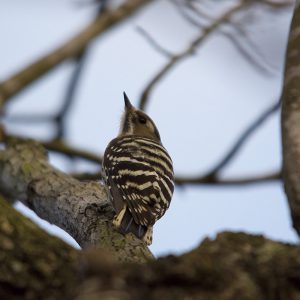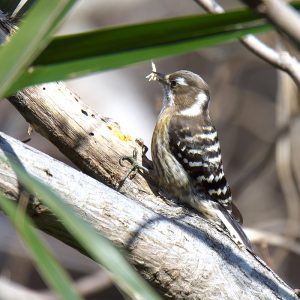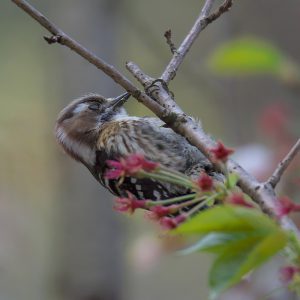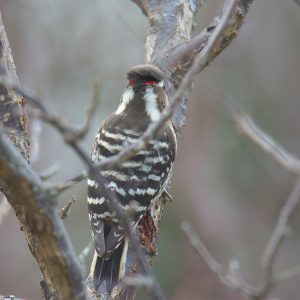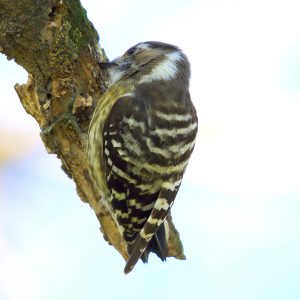むなかたが集まる
電子データベース
電子データベース
コゲラ
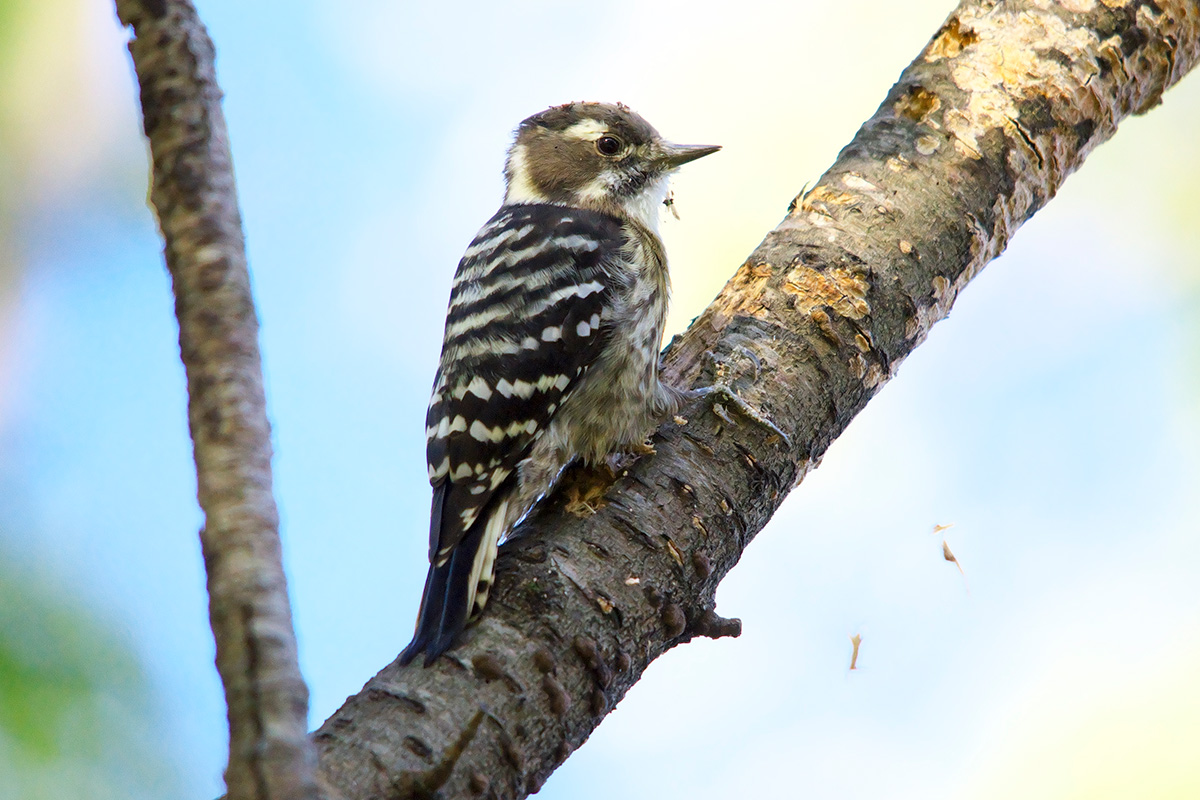
| 種目 | コゲラ (小啄木鳥) | 分類 |
キツツキ目 キツツキ科 アオゲラ属 |
学名 | Dendrocopos kizuki | 英名 | Japanese pygmy Woodpecker |
|---|---|---|---|---|---|---|---|
|
コゲラ (小啄木鳥) |
キツツキ目 キツツキ科 アオゲラ属 |
Dendrocopos kizuki | Japanese pygmy Woodpecker |
宗像市でみられる場所・時期
宗像では留鳥で,市内全域で一年中見ることができる。公園の林や里山,寺社林など幅広く生息している。アオゲラほど大きなドラミング音はしないが,ドラミングの音でその存在に気づくことができる。シジュウカラ,ヤマガラと混群を形成することが多く,比較的観察しやすい。
特徴
全長15㎝の小型のキツツキ類である。日本で観察できるキツツキ類の中では最小である。雌雄ほぼ同色で,スズメ大である。
額から体上面は茶褐色で,眉斑,側頸,腮から体下面は白く,胸脇から体下面に褐色の縦斑がある。背から雨覆,風切に白の横斑がある。
雄の後頭部には小さな赤い斑がある。雌にはない。嘴は細くて短く,灰黒褐色である。
習性
一羽かつがいで縄張りを持って生活する。木をつついて昆虫の幼虫や卵を食べる。枝先や枯れた枝にとりつき,一所懸命につついて,幼虫を掘り出して食べる。
「ギィーッ」,「キッキキキ」などと鳴く。ドラミングの音は,軽快に「トロロロロロロ」と聞こえる。
分布
留鳥として北海道から西表島までの平地の林,河畔林,公園の林などに生息,繁殖する。一部漂鳥として移動する個体もいる。日本固有種である。
国内に八亜種があるとされているが,それほど大きな変異はない。宗像には,キュウシュウコゲラとコゲラがいるとされている。
 はじめに
はじめに お問い合わせ
お問い合わせ